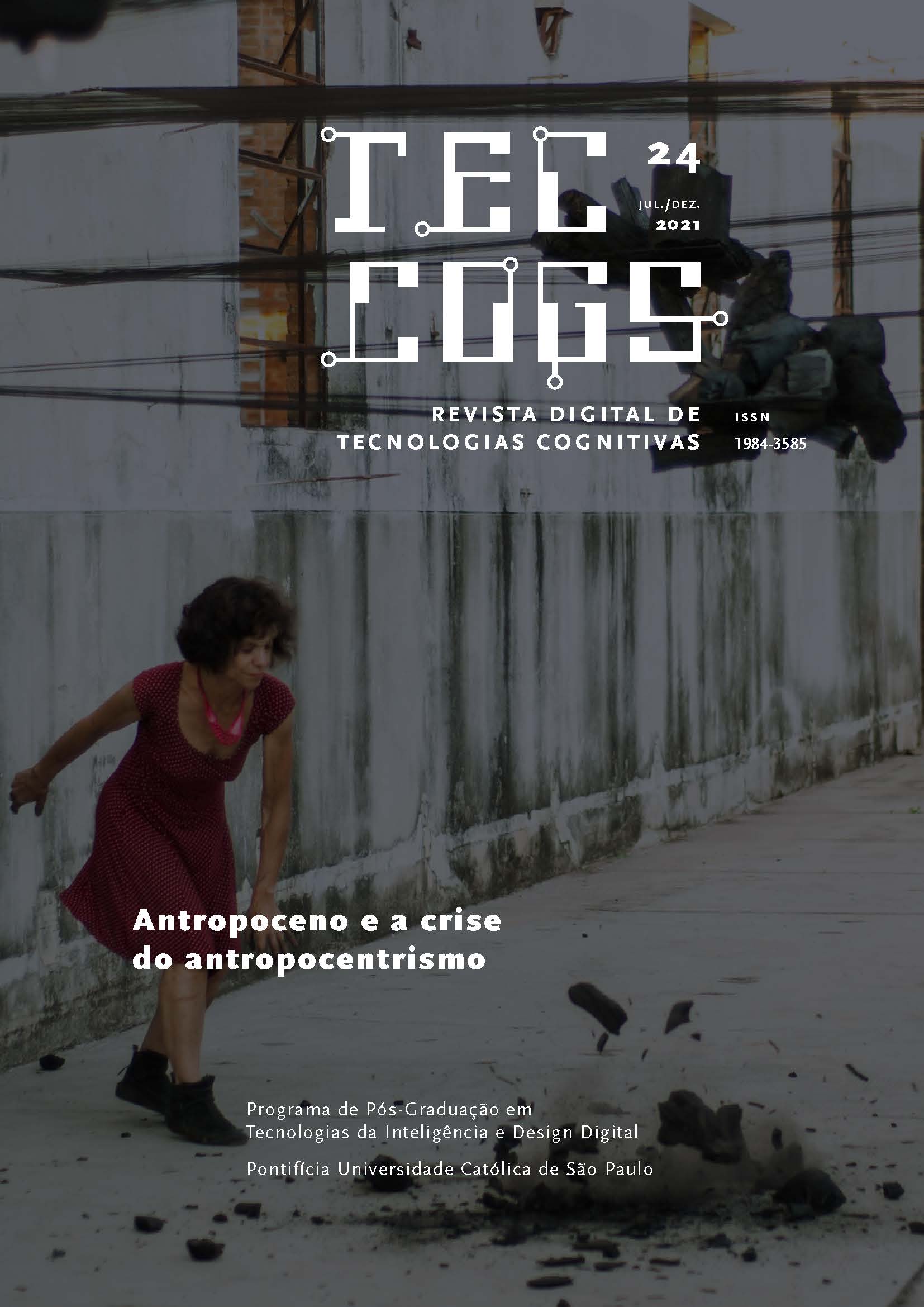Why sentiments can be logical
DOI:
https://doi.org/10.23925/1984-3585.2021i24p215-239Resumo
[The dialogue took place online on the channel @TIDDigital youtube.com/watch?v=sPijMys2qYg, on September 25, 2020].
Today we are having our fourth and last encounter with the philosopher and Peirce scholar Vincent Colapietro in a series of dialogues on cognitive semiotics. The first was our “Dialogue on cognitive semiotics: Minds and machines” (TECCOGS 21).
The second was on the question “What is the semiotic self?” (TECCOGS 22) and the third on “How can we change habits?” (TECCOGS 23). This time, we want to discuss whether or why sentiments may be logical. “Logical Emotions” sounds like a contradiction in terms, a contradictio in adjecto. When we address this topic, we continue our first dialogue of this series, which was on cognition in general. For many scholars, emotion and rationality are separate. We are so used to thinking that logic admits no feeling, but Charles Sanders Peirce had some not so well-known ideas on how both are intimately connected. Peirce had a cognitive theory of emotion, which means that feeling and cognition are not be separated a priori. Of course, we know that the elaboration of a logical argument can bring about a feeling of satisfaction when we finally succeed in coming to a conclusion or a feeling of frustration in case we fail, but the details are still enigmatic. This is why we are awaiting, with feelings of curiosity, what professor Colapietro has to say about the logic of sentiments.
Downloads
Publicado
Como Citar
Edição
Seção
Licença
Copyright (c) 2022 Vincent Colapietro, Winfried Nöth, Guilherme Henrique de Oliveira Cestari, Levy Henrique Bittencourt

Este trabalho está licenciado sob uma licença Creative Commons Attribution 4.0 International License.
Esta revista oferece acesso livre imediato ao seu conteúdo de acordo com a licença CC BY 4.0, em conformidade com a definição de acesso público do Directory of Open Access Journals (DOAJ).
Ao submeter um texto à TECCOGS, os autores asseguram que o material submetido à avaliação e eventual publicação não infringe de modo algum qualquer direito proprietário ou copyright de outros. Com a submissão, o autor transfere em efetivo os direitos de publicação do artigo para a TECCOGS. A transferência de copyright cobre os direitos exclusivos de publicação e distribuição do artigo, incluindo reimpressões ou quaisquer outras reproduções de natureza similar, além de traduções. Os autores mantém o direito de usar todo ou partes deste texto em trabalhos futuros de sua autoria e de conceder ou recusar a permissão a terceiros para republicar todo ou partes do texto ou de suas traduções. Para republicar números da revista na íntegra, qualquer interessado precisa obter permissão por escrito tanto dos autores como também dos editores da TECCOGS. A TECCOGS por si só pode conceder direitos relativos a emissões de periódicos como um todo.
Imagens com direitos autorais pertencentes a terceiros, que não foram concedidos ao autor do texto, devem ser utilizadas somente quando necessárias à análise e ao argumento da pesquisa, sempre indicando as respectivas fontes e autoria. A TECCOGS dispensa o uso de imagens meramente ilustrativas. Se desejar ilustrar um conceito, o autor deve indicar, em forma de URL ou referência bibliográfica, uma referência em que a ilustração esteja disponível.
---------------------------------------------------------------------------------
This journal offers free immediate access to its content under CC BY 4.0, in accordance with Directory of Open Access Journals' (DOAJ) definition of Open Acess.
When submitting a text to TECCOGS, authors ensure that the material submitted for evaluation and eventual publication does not infringe any proprietary right or copyright. Upon submission, authors effectively transfer the publication rights of the article to TECCOGS. The copyright transfer covers the exclusive rights of publication and distribution of the article, including reprints or any other reproduction of similar nature, in addition to translations. Authors retain the right to use all or parts of the text in future works of their own, as well as to grant or refuse permission to third parties to republish all or parts of the text or its translations. In order to fully republish issues of the magazine, anyone interested must obtain written permission from both the authors and the editors of TECCOGS. TECCOGS alone can grant rights relating to issues of journals as a whole.
Images whose copyright belongs to third parties that have not been granted to the author of the text should be used only when essential for the analysis and argument, always indicating theirs respective sources and authorship. TECCOGS dismisses any use of merely illustrative images. To illustrate a concept, the author must indicate, in the form of a URL or bibliographic reference, a source in which the illustration is available.


